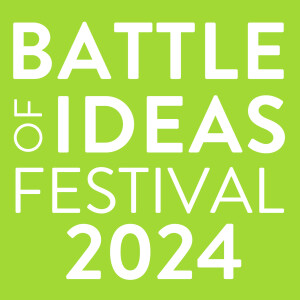
Wednesday Apr 02, 2025
Working to rule: humanity and the history of the algorithm
Recorded at the Battle of Ideas festival 2024 on Saturday 19 October at Church House, Westminster.
ORIGINAL INTRODUCTION
In many ways, we seem to live our lives according to the output of algorithms. They determine the suggestions for the next thing to watch on Netflix and the next thing to buy on Amazon. Our social-media timelines throw up posts that algorithms deem to popular or likely to be of particular interest to us – there are claims this process stoked the summer riots in the UK – along with a side order of personalised adverts. One way or another, algorithms are blamed for many of society’s ills.
Yet an algorithm is simply a well-defined and self-contained procedure, made up of a finite number of ordered steps, to be carried out in order to solve a problem or complete a task. With the twentieth-century advent of computer science, and twenty-first-century developments in Big Data and AI, algorithms have become invisibly woven into countless aspects of our world and our lives. Rarely, however, do we pause to reflect on where algorithms come from and what they tell us about ourselves.
Algorithms are often thought of as a recent phenomenon, but their history can be traced back 4,000 years or more. This history takes us from the First Babylonian Empire, to ancient Alexandria, to Baghdad in the Islamic Golden Age, to nineteenth- and twentieth-century breakthroughs in Königsberg, Göttingen, Vienna, Cambridge and Princeton.
Over the course of their history, algorithms have proved to be an increasingly useful and powerful tool, while confronting humanity with an unsettling question – can all intellectual endeavour be explained, and pursued, in terms of algorithms? Answers to this question, once discovered, gave birth to the rich field of computer science. However, these answers were themselves strange and unsettling, and have been cast in new light by subsequent developments.
In this lecture, Sandy Starr will explore the history of algorithms, and explain how this history can help us think through the challenges posed by today’s AI.
SPEAKERS
Sandy Starr
deputy director, Progress Educational Trust; author, AI: Separating Man from Machine
CHAIR
Harley Richardson
chief product officer, OxEd and Assessment; organiser, AoI Education Forum; blogger, historyofeducation.net; author, The Liberating Power of Education
No comments yet. Be the first to say something!